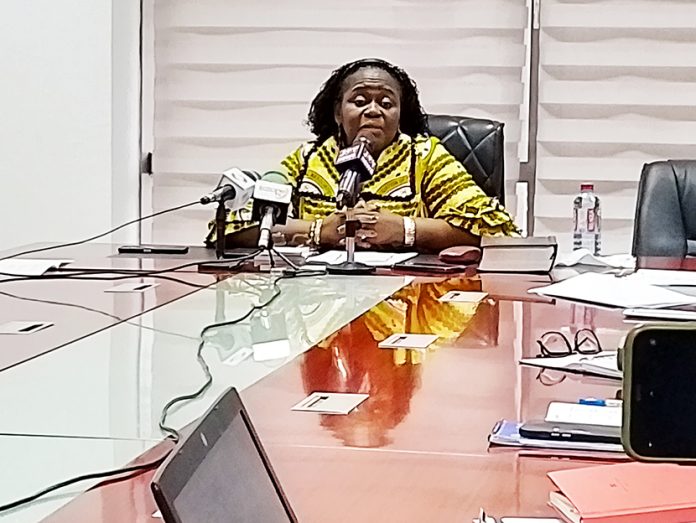Chief Justice, Gertrude Sackey Torkornoo, has outlined a comprehensive transformation strategy aimed at modernizing and humanizing the court experience.
This ambitious initiative marks a significant departure from the traditionally daunting process of seeking justice.
At the heart of this transformation is the introduction of the e-justice system, which has already seen notable success.
By July 2024, approximately 71,781 cases had been filed through this innovative platform at the High Court. This system promises to streamline case management and improve accessibility for the public.
As part of the modernisation efforts to transform the judicial landscape, 116 of the nation’s 468 courts have been automated with a direct transcription system.
This advancement brings the total number of automated courts across Ghana to 228, enhancing efficiency and reducing delays in court proceedings.
The initiative, which began in 2019, is set to expand further, with additional high courts scheduled for automation.
During a recent meeting with the Judicial Press Corps in Accra, Chief Justice Torkornoo emphasised her vision for a more approachable judiciary.
“My prayer is that very soon, the people of Ghana will not feel traumatized when coming to court. Coming to court should not be a negative experience but a simple one, because the Judicial Service is here to serve the public,” she asserted.
In addition to these reforms, the Chief Justice announced plans to publish all land dispute cases to prevent conflicts and illegal reselling of land.
A new debt recovery court will also be established to address the growing caseload at the District Court level.
Chief Justice Torkornoo lauded the efforts of various department heads within the Judicial Service for their role in making justice delivery more seamless and accessible. She highlighted the crucial need for a judicial system that is both strong and user-friendly.
Technological Advancements
The Director of ICT, Noble Kekeli Nutifafa, revealed that his department is working on several new platforms. These include electronic court order signing systems, real-time monitoring capabilities, and the use of machine learning algorithms for speech-to-text transcription during court proceedings.
Additionally, a land database will be created to provide the public with information on land case statuses, ensuring greater transparency.
To enhance administrative efficiency, a new application for managing administrative memos and e-signatures will soon be deployed.
Administrative and Gender Developments
Moses Owereko, Deputy Director of Archives, reported that digitization efforts have already commenced at several key courts and the Judicial Service Head Office.
This initiative aims to make both administrative and court documents more accessible and manageable.
On the gender front, Papa K. Maise, Director of the Monitoring and Evaluation Department, noted a significant increase in female judges and magistrates, from 194 in the 2021/2022 legal year to 218 in the 2022/2023 year. This growth reflects a near-equal gender representation within the judiciary.
Maise also highlighted new guidelines for generating and publishing suit numbers and judgments, now available on platforms like africanlil.org and ghalil.org.
Perpetual Quarshie from the Judicial Training Institute (JTI) announced that the institute is set to enhance judicial and paralegal training through six newly developed curriculum modules.
This ongoing education aims to better equip judges and staff, ensuring a more informed and efficient judicial process.
As Ghana’s judicial system undergoes these significant changes, the focus remains on creating a more accessible, efficient and supportive environment for all who seek justice.








